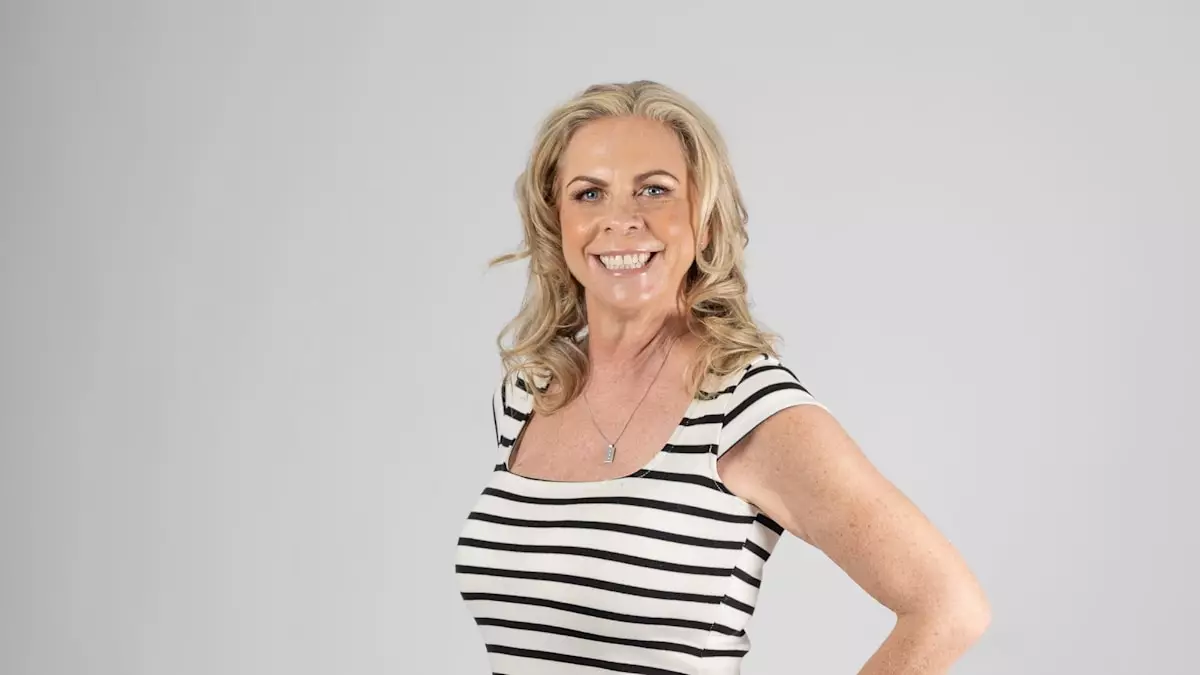Experiencing the onset of perimenopause can feel like an avalanche of unexpected changes, leaving women to grapple with their identity and lifestyle. Take Charlotte Body, for example. At just 47, she encountered a whirlwind of symptoms that rattled her well-being and sense of self. Initially in denial, Charlotte was taken aback by what felt like an unwelcome interruption to her life. “I was too young for this,” she thought, battling against not just physical symptoms but also emotional upheaval. Symptoms such as hair growth in unexpected places and sudden drops in libido left her feeling disconfident and isolated. Many women may relate to Charlotte’s initial feelings of confusion and anxiety, prompting the question: Why is there such stigma associated with discussing menopause?
Transformative Acceptance: Redefining Personal Strength
Fast forward to today, and Charlotte stands at a pivotal juncture in her life. Now 50, her narrative has shifted from one of denial to embracing her identity as a woman navigating menopause. This newfound indifference to others’ opinions has transformed into a sense of empowerment. Charlotte recalls the brain fog that plagued her during her earlier experience—an obstacle that heightened her anxiety levels during meetings and social gatherings. Admitting her struggles has become part of her strategy for reclaiming her interactions, making her feel more in control. “I’m having a really menopausal day today,” she confidently states, reframing her moments of uncertainty as part of her journey.
This courageous openness not only alleviates pressure but fosters connection with others who may be struggling similarly. It’s a vital reminder that it is acceptable to not be okay, and vulnerability can be a source of strength, guiding women through an often challenging transition.
Adjusting to the realities of menopause can signify the re-evaluation of previously established routines. As Charlotte articulated, her approach to fitness evolved dramatically. The spin classes she once adored were replaced by weight training, showcasing that adaptability is crucial. The shift in exercise is emblematic of a broader transformation—one that requires women to listen to their bodies, rather than adhere to outdated practices that no longer serve them. This is not merely about physical changes but resonates deeply with the way women prioritize their health and self-care in the face of life’s continual shifts.
It’s imperative to acknowledge that menopause not only impacts the individual experiencing it but also reshapes relationships. Partners, often unprepared for the upheaval in intimacy and emotional availability, can struggle to navigate these newfound dynamics. Charlotte’s candidness about her dwindling sex drive illustrates an essential aspect of these changes, urging couples to communicate openly. Understanding that these feelings are part of the complex reality of menopause can facilitate greater compassion and understanding in relationships.
In response to her own challenges, Charlotte founded Pause Live, an initiative aimed at enlightening women about menopause while fostering community among those undergoing similar experiences. It is a transformative approach that emphasizes the power of education and solidarity. By connecting with experts and peers alike, women are equipped with insights and coping strategies, helping them transition through menopause with confidence. The collective effort to dismantle the taboo surrounding menopause is paramount; it encourages vulnerability, exchange, and ultimately empowerment.
Charlotte emphasizes the need to embrace every aspect of this transition, reinforcing the idea that menopause is not merely an end but a new beginning. As women acknowledge this pivotal stage in their lives, they are reminded of the unique strength that comes from their shared experiences. Through her journey and advocacy, Charlotte encapsulates the essence of resilience, reminding all women that they deserve to feel valued and empowered during menopause.
Ultimately, the path through menopause is often fraught with challenges, yet it signifies a moment of profound growth. Rather than viewing this period as a hindrance, women are encouraged to celebrate it as part of their lifelong journey. Charlotte’s story is an inspiring testament to that transformative potential. As women learn to appreciate their evolving identities and engage openly with their struggles, they cultivate a deeply rooted understanding of the beauty of womanhood in all its complexity. Embracing menopause can catalyze not only personal empowerment but the creation of a supportive community of women navigating the same challenges—one that ultimately leads to a richer, more fulfilling life experience.

